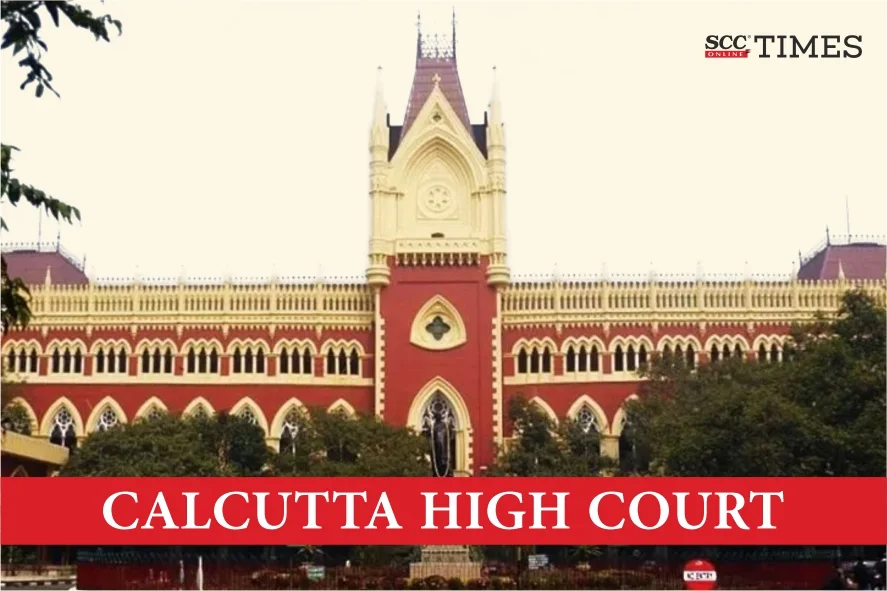Calcutta High Court: A writ petition was filed by Hoichoi Technologies Private Limited (‘Hoichoi’) (petitioners), a company hosting Bengali movies, web series, TV shows, and films through its mobile application against the Reserve Bank of India (‘RBI’) (respondent 1), seeking to initiate adjudicative proceedings against the Google Group, protection from accepting the Google Play Billing System (‘GPBS’) payment system, and a restraint order against delisting it from the Play Store due to alleged violation of the Guidelines on Regulation of Payment Aggregators and Payment Gateways issued by the RBI Sabyasachi Bhattacharyya, J., dismissed the writ petition without costs, stating that the primary reliefs sought by the petitioners were premature and noted that the RBI required time to adjudicate on the matter and expressed trust in the RBI’s ability to resolve the issues within a reasonable timeframe, preferably within 12 weeks.
Brief Background
The petitioners alleged that the Google Group of Companies, specifically Google India Digital Services Private Limited (‘Google India’), are acting as Payment Aggregators (PAs) without proper authorization under Payments and Settlement Act, 2007 (PSS Act). They argued that by using the Google Play Billing System (GPBS) for payment transactions on the Google Play Store, the Google Group is flouting the RBI’s guidelines on PAs. The petitioners sought various reliefs, including a mandamus for the RBI to initiate adjudicative proceedings against the Google Group, protection from accepting GPBS-UCB payment system, and a restraint order against delisting from the Play Store. It is pertinent to mention herein that Hoichoi had filed its grievance against Google India before RBI in the form of a complaint dated 19-02-2024, the present writ was filed before the High Court on 20-02-2024.
Analysis, Law, and Decision
Upon considering the contentions the Court found that the reliefs sought in the writ petition were primarily protection from delisting from the Play Store, rather than the mandamus for RBI to initiate proceedings. The Court further observed that the issues raised before it were more suitable for adjudication by RBI and other regulatory bodies.
Further, the Court rejected the plea for interim protection, noting that similar reliefs had been sought before the Competition Commission of India (CCI), indicating an overlapping challenge.
The Court opined that the matter was premature for its consideration as the RBI had already initiated proceedings and that it required a reasonable period to adjudicate the issues involved.
Regarding the allegation of Google Group acting as PAs, the Court examined the agreements between the parties and found that the service charges levied by Google were for hosting the apps on the Play Store and not for handling end-to-end payment mechanisms. The Court concluded that Google Play services did not, prima facie, act as PAs, as they only provided hosting services and various payment methods, including GPBS operated by Google India. The Court emphasized that displaying various payment apps on the platform does not make Google itself a PA.
The Court remarked that “the development agreements specifies that the service charge levied is merely for the service provided by Google for permitting the petitioners to display their products, for making them viewable, downloadable and for purchase of the products by users. The service charges levied are therefore only for carrying products on the Google Play platform and is exacted only when the petitioners extract the platform and exploit it for commercial purposes of their own. The nature of the charge, however, remains as a service charge and leaves no role for Google to Act as a PA.”
The Court further remarked that “Google Play services have made out a reasonably satisfactory prima facie case of charging only “service charges for hosting the Applications like Hoichoi when the said Apps earn money by using the platform provided by Google. It only provides user of the online platform across devices for the purpose of hosting developers and App operators. There is nothing palpable or ex facie evident to clinch beyond reasonable doubt that Google acts as PA by handling end-to-end payment mechanisms from merchants to customers. Displaying various payments Apps on its platform including respondent 6, which is an accredited body incorporated in India as a PA, does not make Google itself or its group of companies other than respondent 6 a PA per se.”
The Court, therefore, dismissed the writ petition and refused interim protection to Hoichoi, emphasizing the jurisdiction of regulatory bodies like RBI and CCI to adjudicate the complex issues involved. It also clarified that Google Play services, prima facie, did not function as PAs, however, leaving the final decision to RBI’s adjudication process preferably within 12 weeks.
[Hoichoi Technologies Private Limited v. Reserve Bank of India, 2024 SCC OnLine Cal 3569, Order dated 05-04-2024]
Advocates who appeared in this case :
Advocates for Petitioners: Sabyasachi Chowdhury, Rudraman Bhattacharyya, Shuvasish Sengupta, Shyantee Datta, Vivek Pandey.
Advocate for RBI: Suchishmita Ghosh
Advocates for Respondent: S.N. Mookherjee, Sr. Adv., Ratnanko Banerji, Sr. Adv., V.P. Singh, Sayobani Basu, Asif Ahmed, Mini Agarwal, Ms. Shubhangi Jain, Pubali Sinha Chowdhury, Naman Chowdhury, Dhruv Chawla, Sayyan Poovayya, Chetan Chawla



